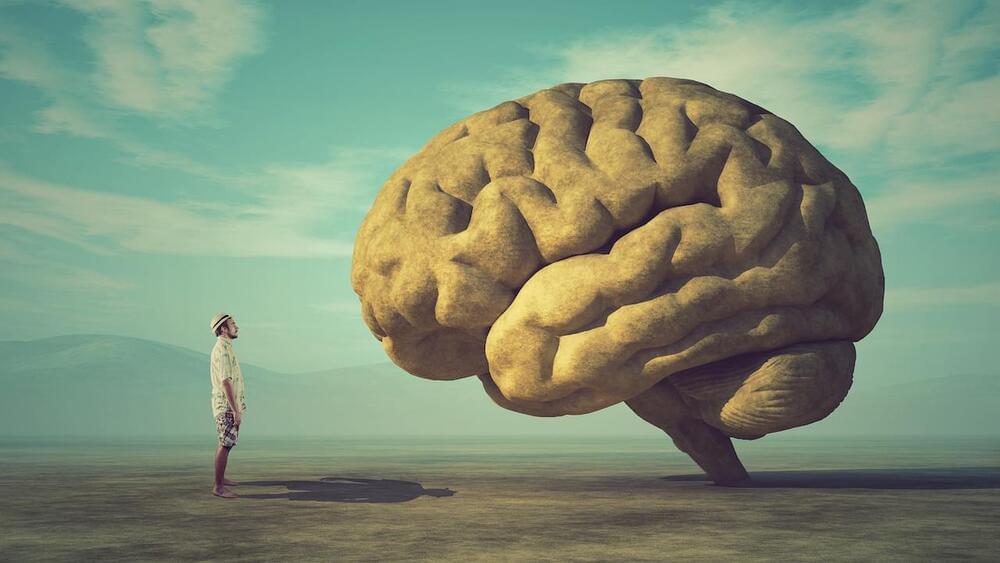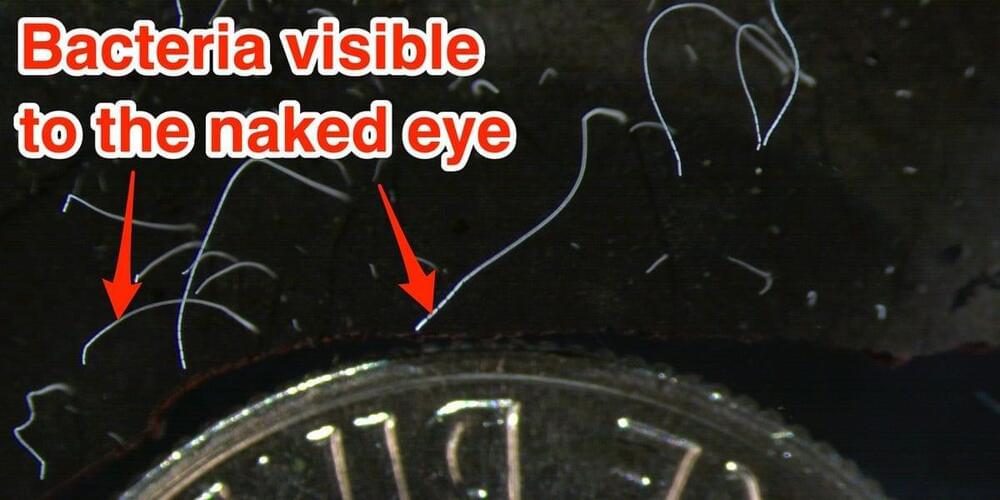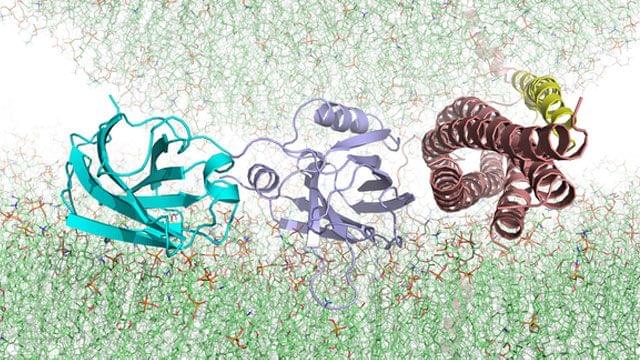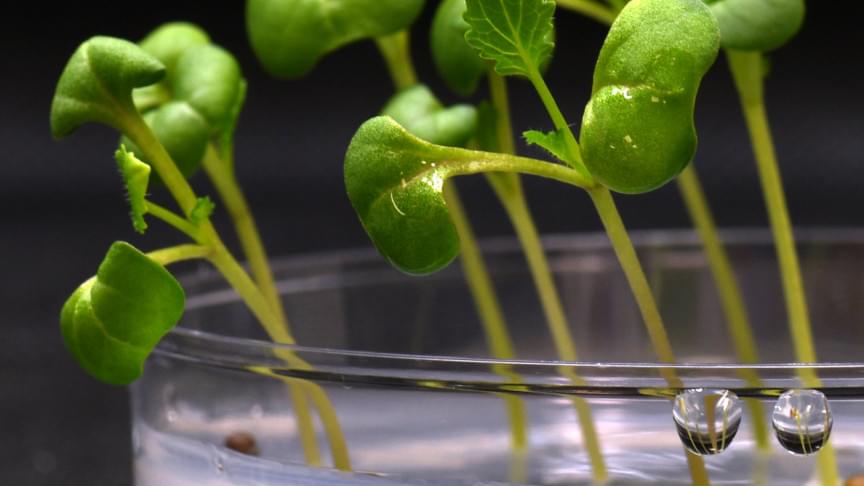Page 4632
Jun 24, 2022
Amazon’s Alexa Will Soon be Able to Use a Dead Person’s Voice
Posted by Jose Ruben Rodriguez Fuentes in categories: robotics/AI, space
Amazon introduced the technology at Amazon re: MARS 2022, its annual AI event centered around machine learning, automation, robotics, and space. Alexa AI head scientist Rohit Prasad referred to the upcoming feature as a way to remember friends and family members who have passed away.
“While AI can’t eliminate the pain of loss, it can definitely make their memories last,” Prasad said.
Continue reading “Amazon’s Alexa Will Soon be Able to Use a Dead Person’s Voice” »
Jun 24, 2022
Computer chips powered by human brain cells exist — but is it ethical?
Posted by Jose Ruben Rodriguez Fuentes in category: robotics/AI
Although the name and scenario are fictional, this is a question we have to confront now. In December 2021, Melbourne-based Cortical Labs grew groups of neurons (brain cells) that were incorporated into a computer chip. The resulting hybrid chip works because both brains and neurons share a common language: electricity.
In silicon computers, electrical signals travel along metal wires that link different components together. In brains, neurons communicate with each other using electric signals across synapses (junctions between nerve cells). In Cortical Labs’ Dishbrain system, neurons are grown on silicon chips. These neurons act like the wires in the system, connecting different components. The major advantage of this approach is that the neurons can change their shape, grow, replicate, or die in response to the demands of the system.
Dishbrain could learn to play the arcade game Pong faster than conventional AI systems. The developers of Dishbrain said: “Nothing like this has ever existed before … It is an entirely new mode of being. A fusion of silicon and neuron.”
Jun 24, 2022
Early humans may have hibernated—a discovery that could be the key to space travel
Posted by Jose Ruben Rodriguez Fuentes in category: space travel
Jun 24, 2022
Photo shows newly-discovered bacteria so large they are visible to the naked eye
Posted by Josh Seeherman in category: biotech/medical
This creature was discovered by chance in a Caribbean mangrove. It is surprising not only for its size but its DNA-encasing internal membranes.
Jun 24, 2022
Preparing for the Discovery of Alien Life
Posted by Dirk Schulze-Makuch in category: alien life
Exploring Otherness on Earth and Beyond is a new research project of ours with the goal to prepare us for the discovery of alien life. For more info, see.
Jun 24, 2022
Supercomputer Helps Understand the Physics of Thought
Posted by Jose Ruben Rodriguez Fuentes in categories: biotech/medical, chemistry, supercomputing
Decades of research has led to a thorough understanding of the main protein players and the broad strokes of membrane fusion for synaptic transmission. Bernard Katz was awarded the 1970 Nobel Prize in Medicine in part for demonstrating that chemical synaptic transmission consists of a neurotransmitter-filled synaptic vesicle fusing with the plasma membrane at nerve endings and releasing its content into the opposing postsynaptic cell. And Rizo-Rey’s longtime collaborator, Thomas Südhof, won the Nobel Prize in Medicine in 2013 for his studies of the machinery that mediates neurotransmitter release (many with Rizo-Rey as a co-author).
But Rizo-Rey says his goal is to understand the specific physics of how the activation process of thought occurs in much more detail. “If I can understand that, winning the Nobel Prize would just be a small reward,” he said.
Recently, using the Frontera supercomputer at the Texas Advanced Computing Center (TACC), one of the most powerful systems in the world, Rizo-Rey has been exploring this process, creating a multi-million atom model of the proteins, the membranes, and their environment, and setting them in motion virtually to see what happens, a process known as molecular dynamics.
Jun 24, 2022
A new breakthrough in biology allows scientists to grow food without sunlight
Posted by Genevieve Klien in categories: biological, climatology, solar power, space, sustainability
The researchers also optimized their electrolyzer to produce the highest levels of acetate ever produced in an electrolyzer to date. What’s more, they found that crop plants, including cowpea, tomato, rice, green pea, and tobacco, all have the potential to be grown in the dark using the carbon from acetate. There’s even a possibility that acetate could improve crop yields, though more research is required.
The researchers believe that by reducing the reliance on direct sunlight, artificial photosynthesis could provide an important alternative for food growth in the coming years, as the world adapts to the worst effects of climate change — including droughts, floods, and reduced land availability. “Using artificial photosynthesis approaches to produce food could be a paradigm shift for how we feed people. By increasing the efficiency of food production, less land is needed, lessening the impact agriculture has on the environment. And for agriculture in non-traditional environments, like outer space, the increased energy efficiency could help feed more crew members with less inputs,” Jinkerson explained.
Jun 24, 2022
The Age of Superhumans — Gene Editing Through CRISPR & AI
Posted by Dan Breeden in categories: bioengineering, biotech/medical, genetics, robotics/AI
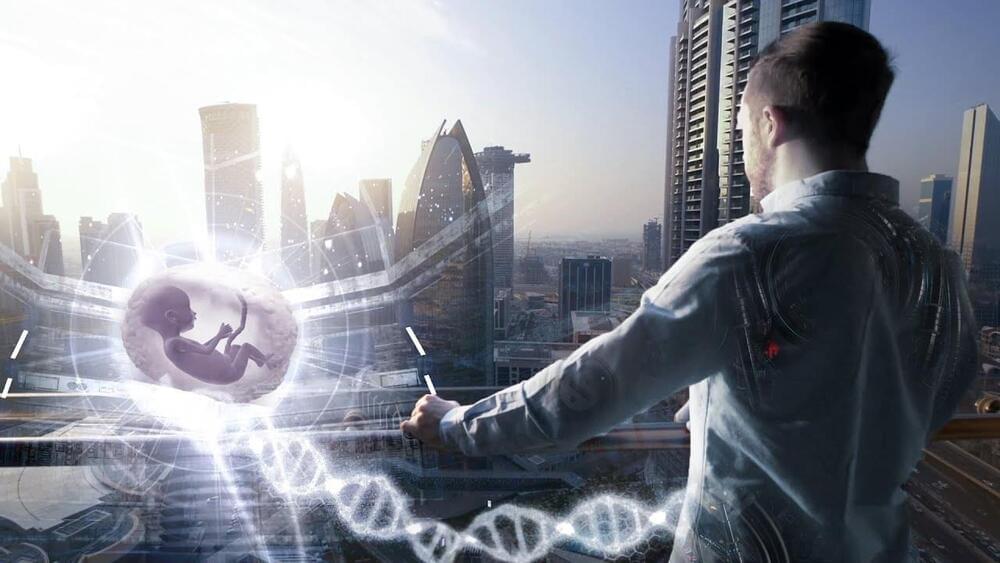
Superhumans are coming! Various technological advances in the field of medicine through AI and CRISPR are going to radically alter our understanding of what it means to be human. AI and Crispr technology have been making revolutionary changes to the field of medicine. Artificial intelligence is being applied in identification of harmful genes and treatment of disease.
Multiple new gene editing technologies in addition to artificial intelligence will cause major changes in healthcare.
The gene-editing tool CRISPR, short for clustered regularly interspaced short palindromic repeats, could help us to reprogram life. It gives scientists more power and precision than they have ever had to alter human DNA.
Continue reading “The Age of Superhumans — Gene Editing Through CRISPR & AI” »
Jun 24, 2022
The Rise of Supersoldiers — How AI Changes Everything
Posted by Dan Breeden in categories: bioengineering, biotech/medical, chemistry, genetics, health, military, robotics/AI

Artificial Intelligence is touching almost every aspect of our lives. It’s reasonable to expect AI influence will only increase in the future. One of many fields heavily influenced by AI is the military. Particularly in the development of Supersoldiers. The notion of super-soldiers enhanced with biotechnology and cybernetics was once only possible in the realm of science fiction. But it may not be too long before these concepts become a reality.
A new worldwide arms race is pitting countries against each other to be the first to successfully create real genetically modified super soldiers by using tools such as CRISPR. Understandably many of these human enhancement technologies raise health and safety questions and it is more likely these enhancements will first gain traction in countries that do not place as much weight on ethical concerns.
Continue reading “The Rise of Supersoldiers — How AI Changes Everything” »


